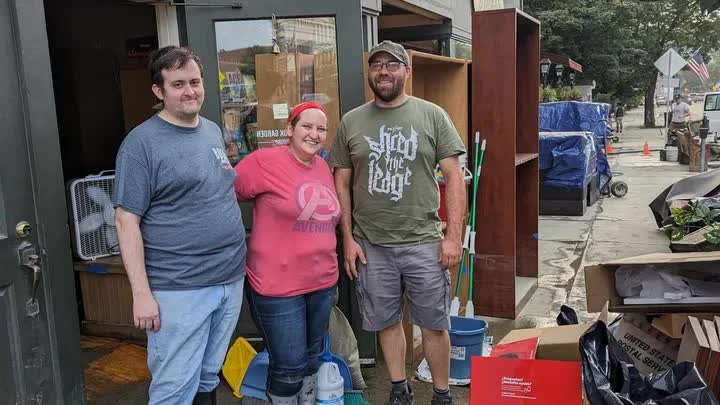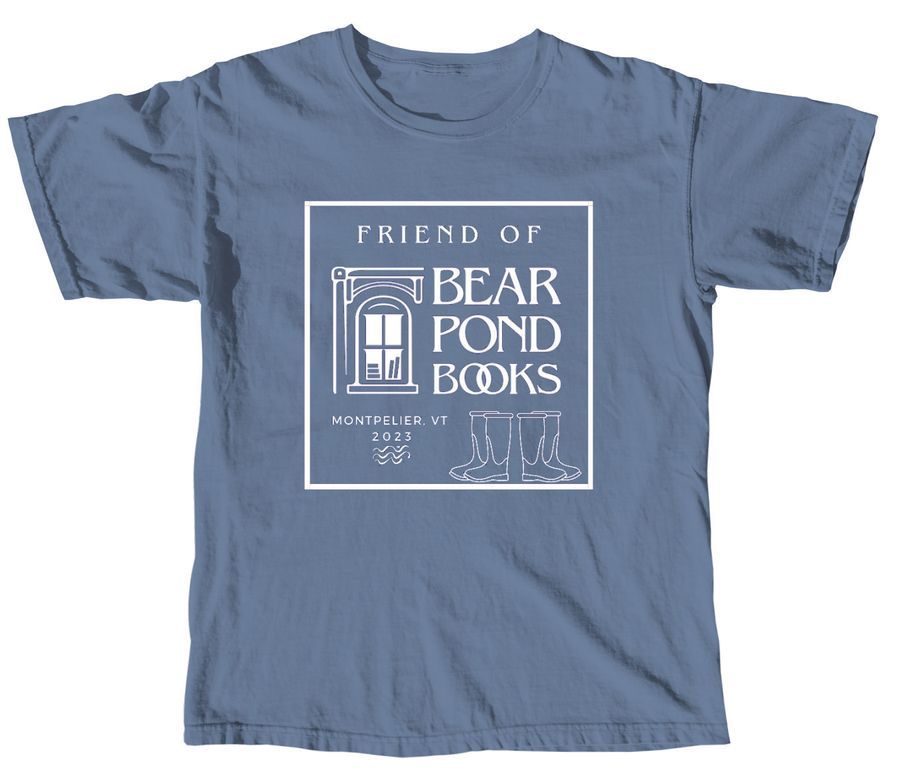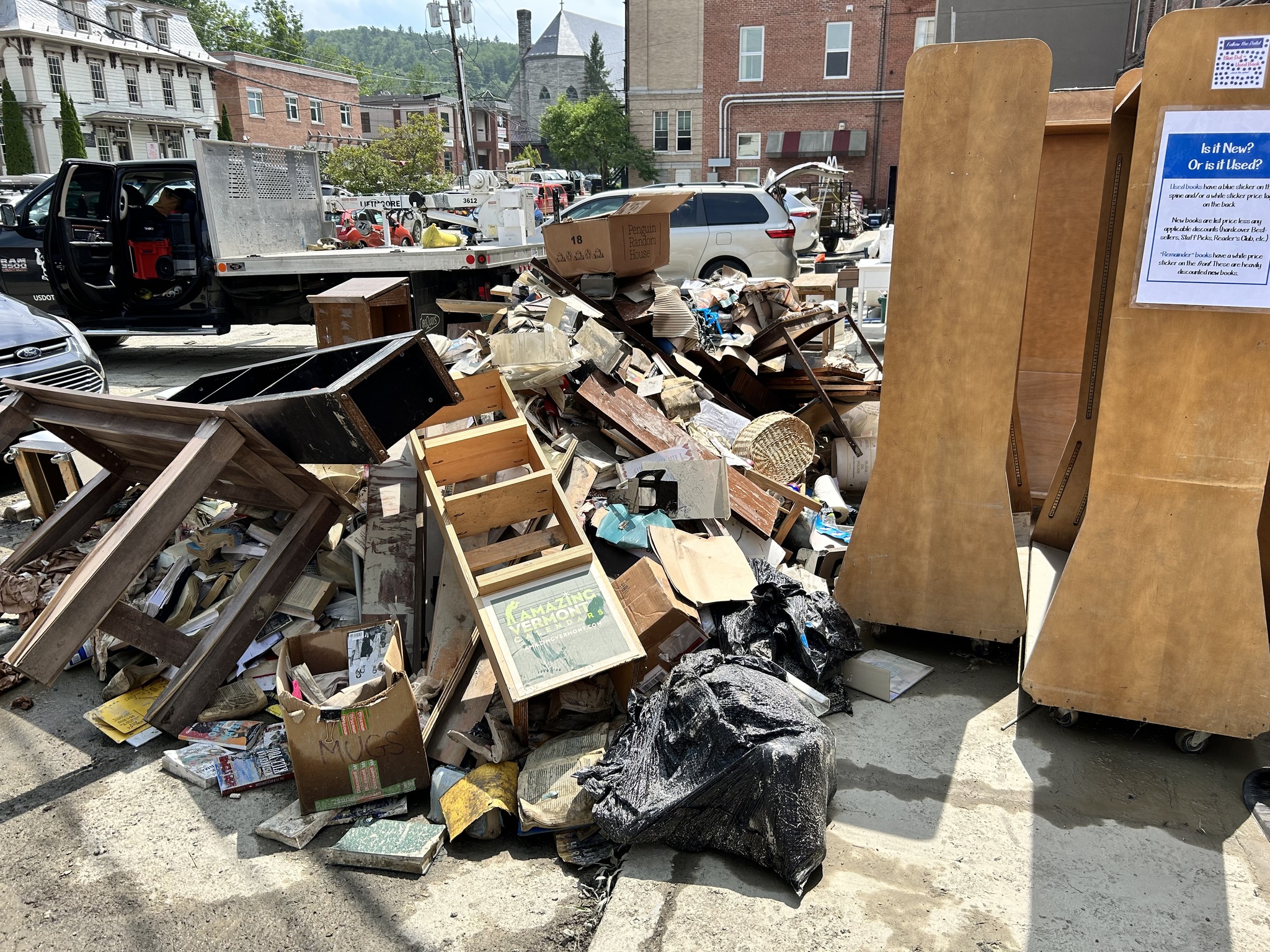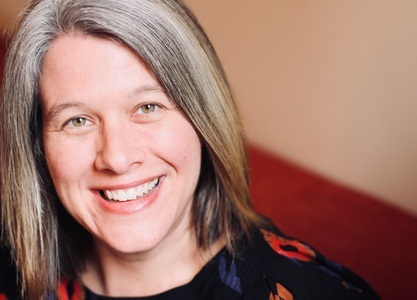 |
| photo: Jen Lee Productions |
Laura Sims is the author of the novel Looker, now in development for television with eOne and Emily Mortimer's King Bee Productions. An award-winning poet, Sims has published four poetry collections; her essays and poems have appeared in the New Republic, Boston Review, Electric Lit, and more. She and her family live in New Jersey, where she works part time as a reference librarian and hosts the library's lecture series. Her second novel, How Can I Help You (Putnam), is a psychological thriller about two librarians at a small-town public library.
Handsell readers your book in 25 words or less:
A literary suspense novel about two local librarians whose lives become dangerously intertwined when one's mysterious past becomes fodder for the other's writerly obsession.
On your nightstand now:
Little Eyes by Samanta Schweblin. I loved her first novel, Fever Dream, and this one is also eerily prescient and disturbing, a deeply considered exploration of the relationship between humans and technology. Also on the nightstand: The Book of Goose by Yiyun Li, my next read; Lockwood & Co.: The Whispering Skull by Jonathan Stroud, which I'm reading aloud to my tween; a bound manuscript I'm about to read for a blurb; Conversations with Octavia Butler, edited by Consuela Francis, for inspiration; and finally, Diane Arbus: Portrait of a Photographer by Arthur Lubow, a book I'm using to research my next novel-in-progress.
Favorite book when you were a child:
All the Nancy Drew books, start to finish. I read them all by third grade, recorded my secrets in a Nancy Drew diary, and even set up my own (unsuccessful) detective agency inspired by the books. I was shocked to learn that there was no "Carolyn Keene" who authored them but, instead, Harriet Stratemeyer Adams, and I cried at the news of her death. (I was nine years old at the time.)
Your top five authors:
Virginia Woolf, David Markson, Toni Morrison, Elena Ferrante, Sigrid Undset, Miriam Toews, Jun'ichirō Tanizaki, Alice Munro, Nnedi Okorafor, Rachel Cusk, Jane Gardam, Shirley Jackson, Charlotte Brontë, Elizabeth Strout. Does anyone really list just five??
Book you've faked reading:
Infinite Jest by David Foster Wallace. It's more that I've avoided reading it, but I may have faked reading it once or twice.
Book you're an evangelist for:
Wittgenstein's Mistress by David Markson. I read it when I was just beginning to think I may like to write fiction one day, but writing fiction felt impossible to me as a poet. Markson's book--brilliant, formally innovative, and fragmented--taught me a whole new way of thinking about the novel. And I simply adored the book. I'm still haunted by its vision of a (possibly) empty world, and its final scene is one for the ages.
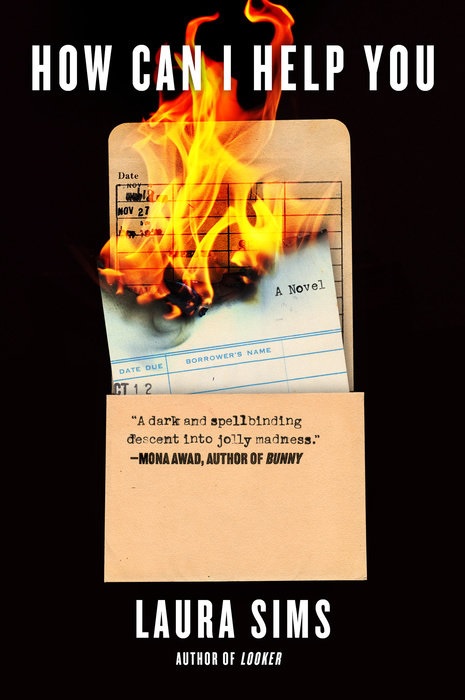 Book you've bought for the cover:
Book you've bought for the cover:
The Vegetarian by Han Kang. I love red books--I was also drawn to Nightbitch by Rachel Yoder for the same reason--and this one, with its female profile in black against the red (before that was such a common book cover design), drew me right in. It was a match made in heaven; I devoured the book--ha ha--and am still influenced by it to this day.
Book you hid from your parents:
Flowers in the Attic by V.C. Andrews--and many of its tawdry sequels. I read those books in middle school! And got in trouble with my English teacher for doing a book report on Heaven in the sixth grade. She drew me aside and told me it wasn't "appropriate reading." As a librarian, I don't like hearing that, but in this case, I think she was right. Maybe I'm still scarred by those books today, which is why I write such dark fiction.
Book that changed your life:
To the Lighthouse by Virginia Woolf. I felt so at one with this book and fully, deeply understood it when I read it as a college student. My professor asked me if I'd read it before, in another class, because I knew it so well. That and James Joyce's A Portrait of the Artist as a Young Man really cemented and nourished the core of what I believed to be the elements of an artist's life: isolation, constant struggle, and misalignment with mainstream society--interrupted by periods of ecstatic enlightenment. That all seemed very romantic to me in my late teens.
Favorite line from a book:
I love this quote about writing--and others like it--from Virginia Woolf's A Writer's Diary: "What a grind it is; and I suppose of little interest except to six or seven people. And I shall be abused." If I'm ever feeling down about the writing process, or worried about reader responses and reviews, knowing the great Virginia Woolf had similar fears and anxieties is immensely reassuring.
Five books you'll never part with:
Ariel by Sylvia Plath; Wittgenstein's Mistress by David Markson; The Bluest Eye by Toni Morrison; Jesus' Son by Denis Johnson; Final Harvest by Emily Dickinson.
Book you most want to read again for the first time:
Tess of the d'Urbervilles by Thomas Hardy or Sophie's Choice by William Styron. Both were such intense, vivid reading experiences for me. I read both while living in Japan just after college. I had an undemanding job, lived alone in the countryside, and decided to fill my free time by reading as many of the classics I'd missed as I could. I read The Brothers Karamazov by Fyodor Dostoevsky, War and Peace by Leo Tolstoy, Ulysses by James Joyce, The Makioka Sisters by Jun'ichirō Tanizaki, and more. I remember biking to a river one idyllic autumn day to picnic and read Sophie's Choice. I'll never forget it--or any of the books I read during that time. I don't think I could replicate that kind of reading intensity now, in the midst of a busy life. Maybe someday.
Best film adaptation of a novel:
Let the Right One In by John Ajvide Lindqvist (the original Swedish film version). Haunting, original, and perfectly minimalist. The best vampire movie ever, though it's really about friendship.
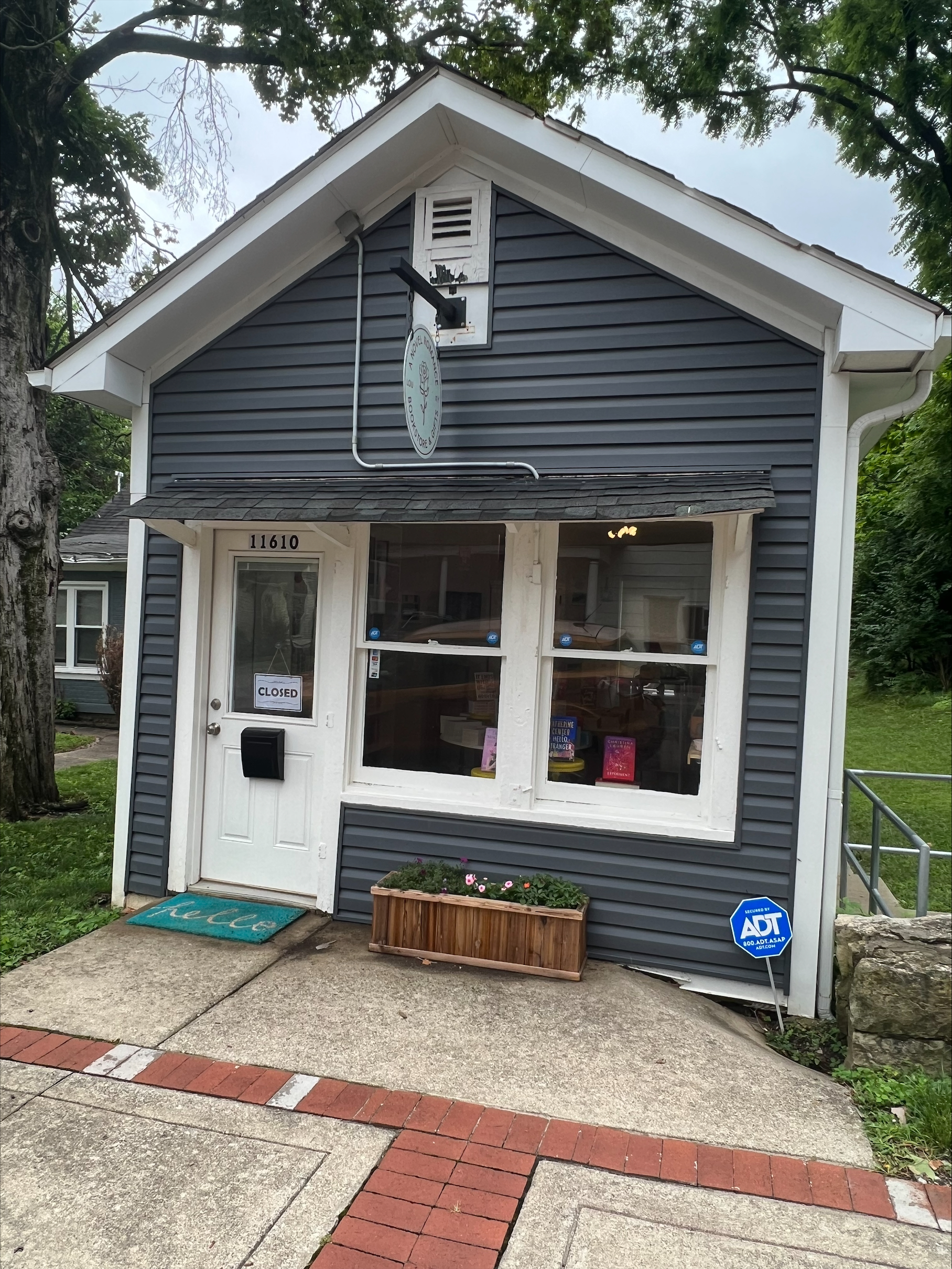 A romance-focused bookstore called A Novel Romance opened in Louisville, Ky., on July 15. It is Louisville's first romance-focused bookstore.
A romance-focused bookstore called A Novel Romance opened in Louisville, Ky., on July 15. It is Louisville's first romance-focused bookstore.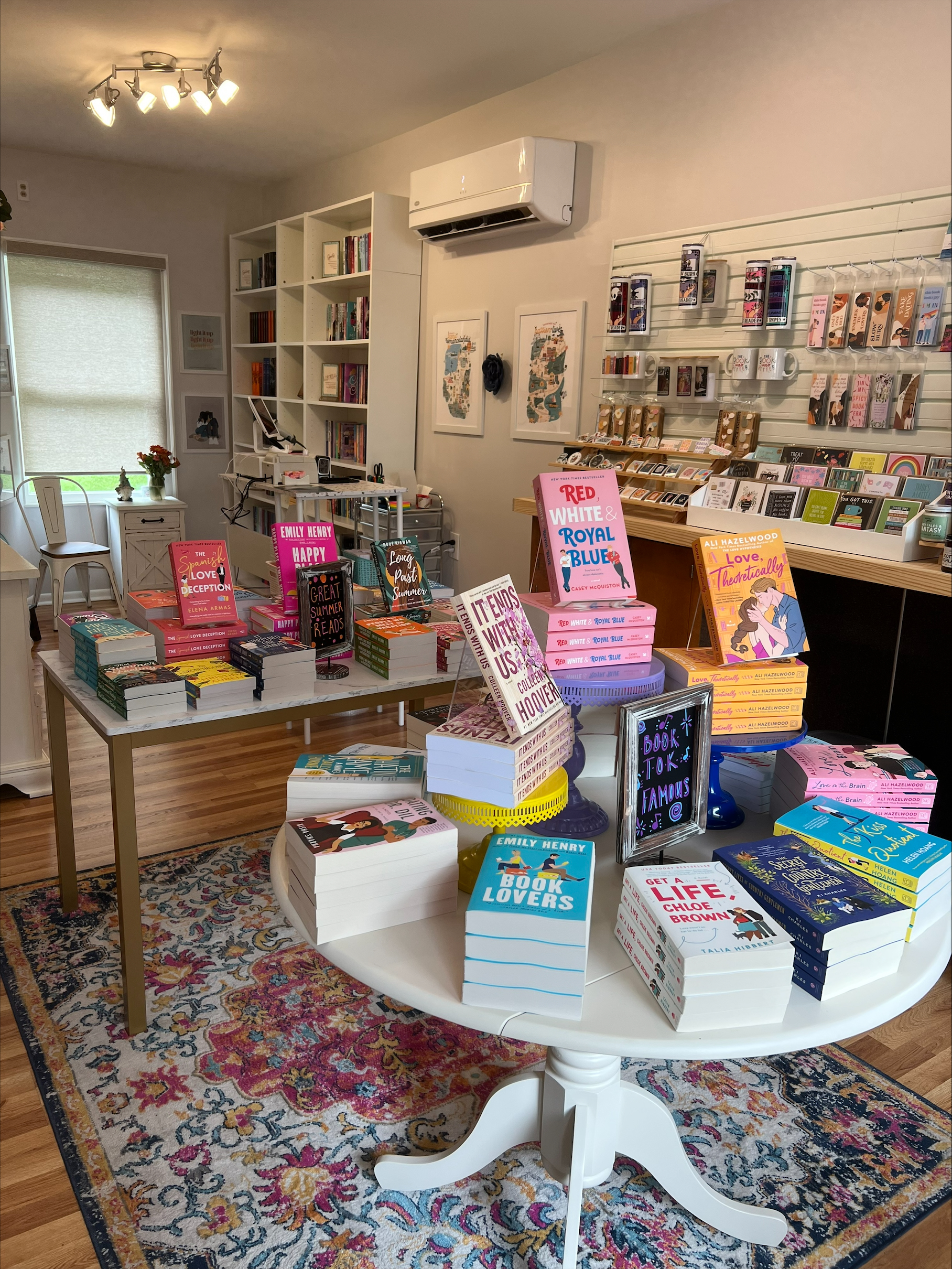 "Our mission is to provide a haven where readers can explore the vibrant world of romantic fiction, writers can find inspiration, and book enthusiasts can celebrate their love for literature," said owner Jonlyn Scrogham. An avid reader, Scrogham also has more than 20 years of retail and customer service experience.
"Our mission is to provide a haven where readers can explore the vibrant world of romantic fiction, writers can find inspiration, and book enthusiasts can celebrate their love for literature," said owner Jonlyn Scrogham. An avid reader, Scrogham also has more than 20 years of retail and customer service experience.




IPC.0204.S3.INDIEPRESSMONTHCONTEST.gif)




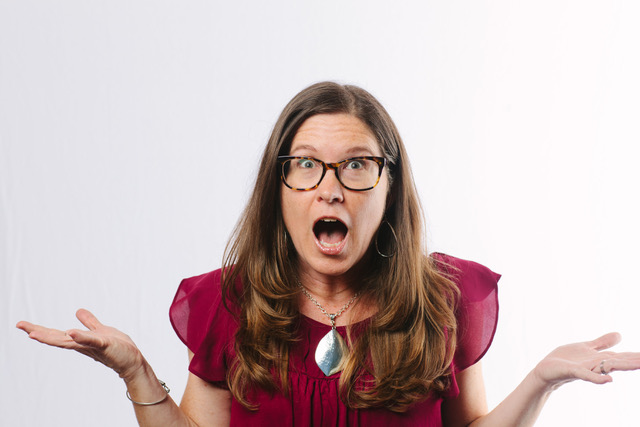
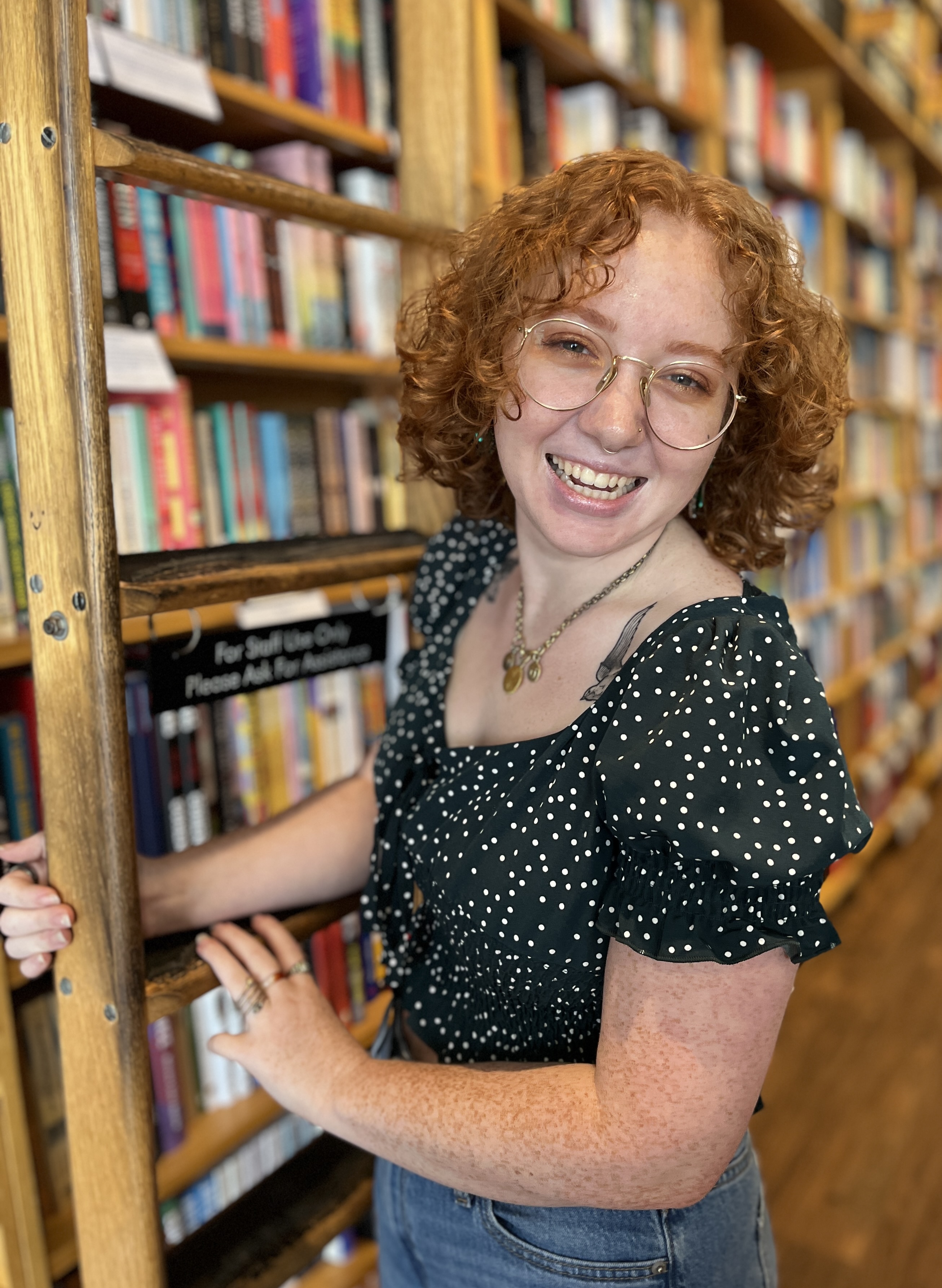

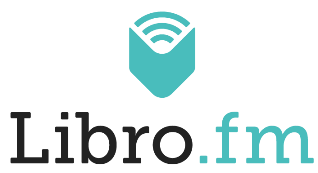

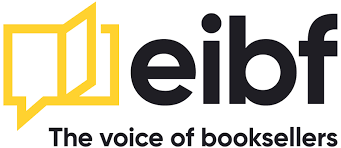 During the
During the IPC.0211.T4.INDIEPRESSMONTH.gif)
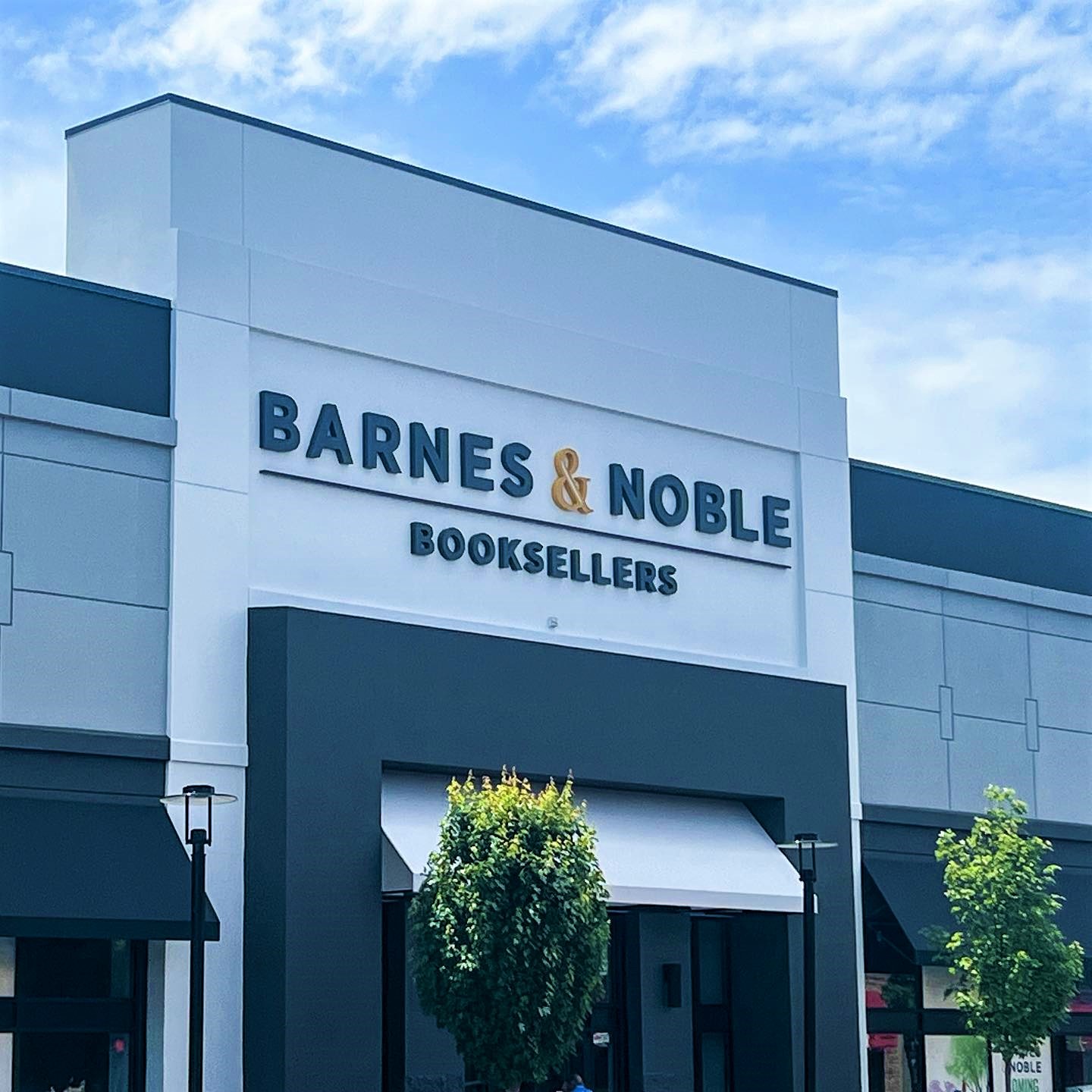 Barnes & Noble will reopen its store in the Avenue at White Marsh shopping center in Baltimore, Md., next week.
Barnes & Noble will reopen its store in the Avenue at White Marsh shopping center in Baltimore, Md., next week.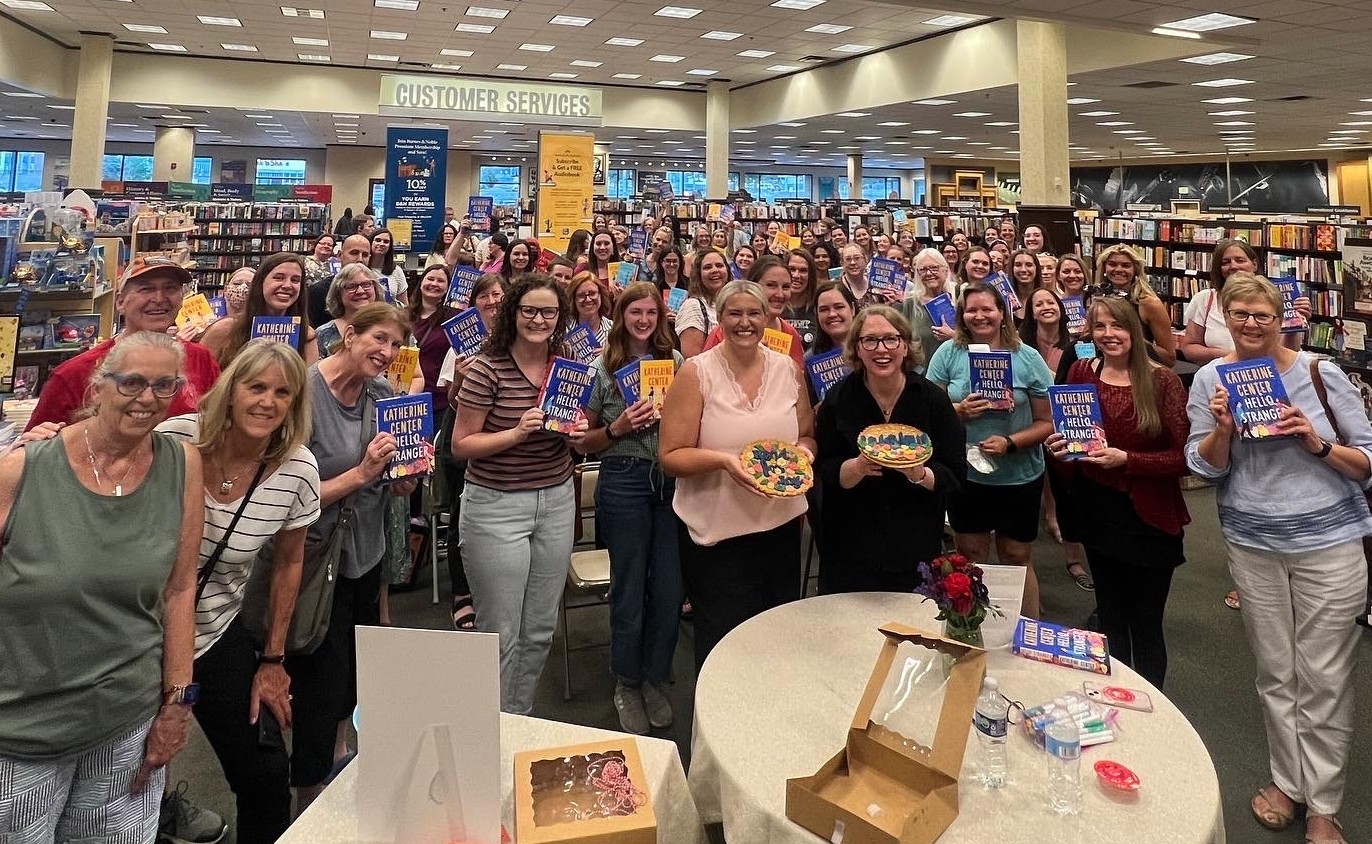 Author Katherine Center (in black) and Stephanie Hockersmith, aka @PieLadyBooks (to Center's right), celebrated the release of Center's Hello Stranger (St. Martin's Press) with a talk and signing at Barnes & Noble in Briargate, Colo. They're holding pies, baked by Hockersmith, modeled after the novel's cover.
Author Katherine Center (in black) and Stephanie Hockersmith, aka @PieLadyBooks (to Center's right), celebrated the release of Center's Hello Stranger (St. Martin's Press) with a talk and signing at Barnes & Noble in Briargate, Colo. They're holding pies, baked by Hockersmith, modeled after the novel's cover.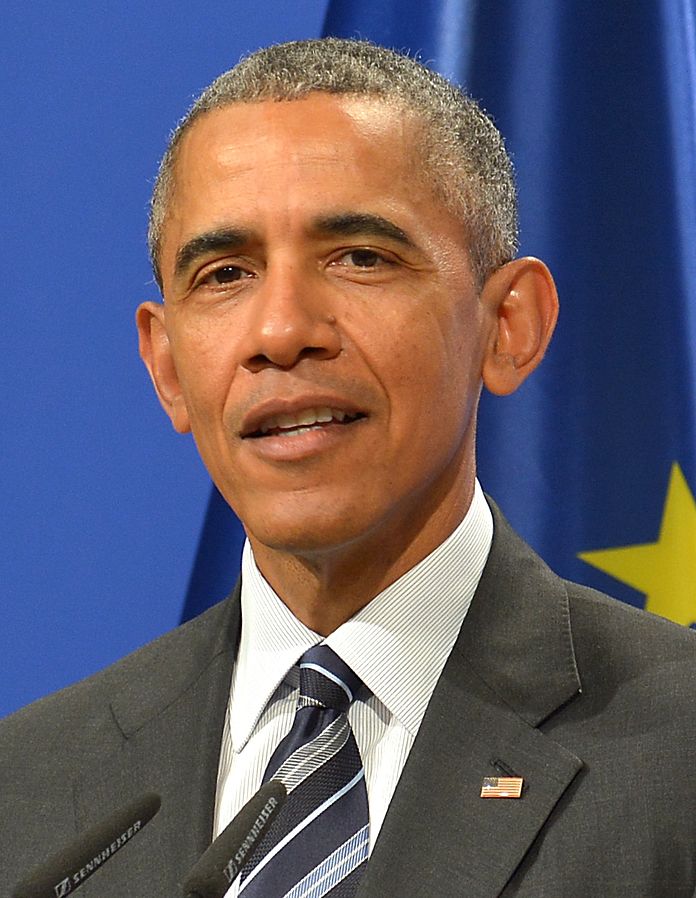 Barack Obama has released his summer reading list. On Instagram, he wrote, "
Barack Obama has released his summer reading list. On Instagram, he wrote, "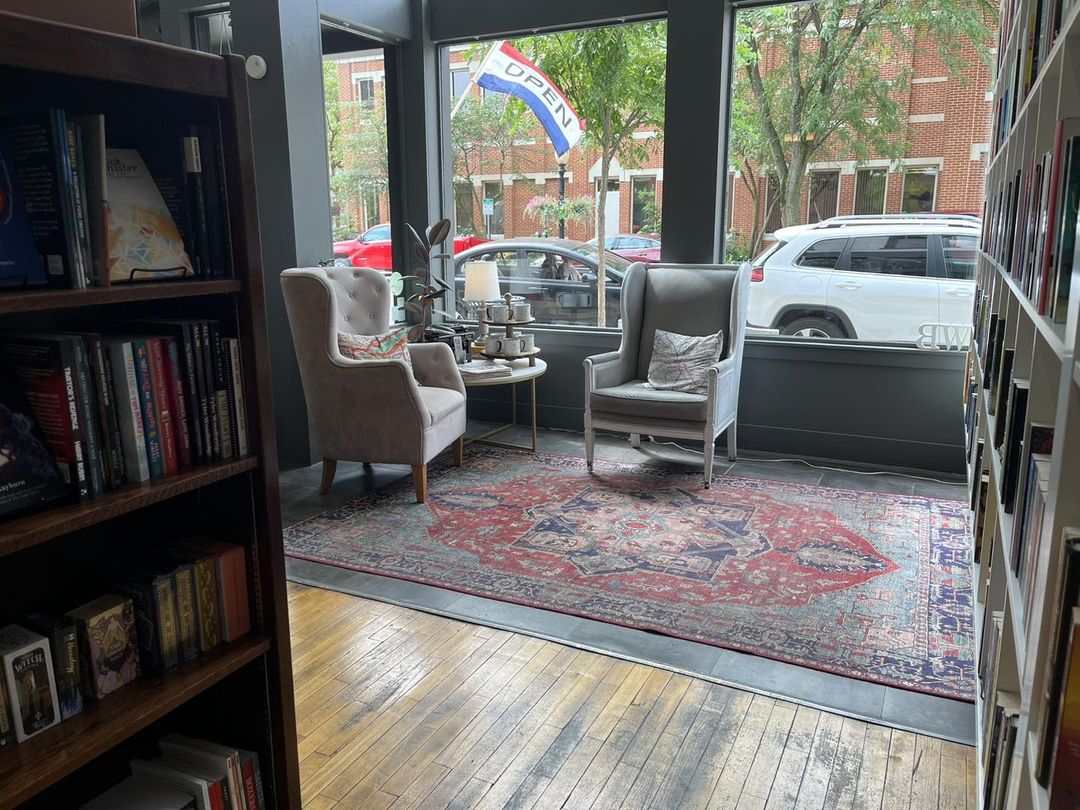 "
"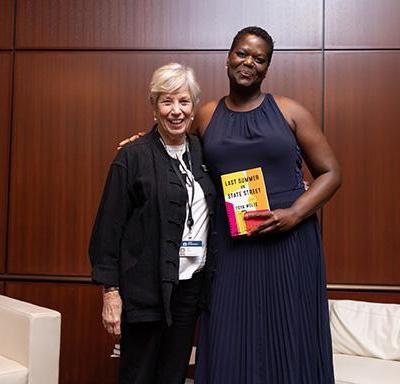

 Book you've bought for the cover:
Book you've bought for the cover: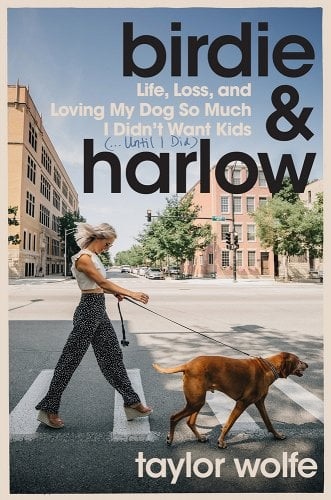 Birdie & Harlow, the first book by blogger Taylor "Tay" Wolfe, is an adventurous memoir filled with bittersweet stories about how Harlow, a much beloved dog, accompanied the author and her husband over 10 years of ups and downs on the way to becoming the parents of their beautiful daughter, Birdie.
Birdie & Harlow, the first book by blogger Taylor "Tay" Wolfe, is an adventurous memoir filled with bittersweet stories about how Harlow, a much beloved dog, accompanied the author and her husband over 10 years of ups and downs on the way to becoming the parents of their beautiful daughter, Birdie.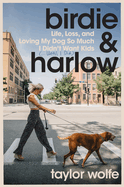
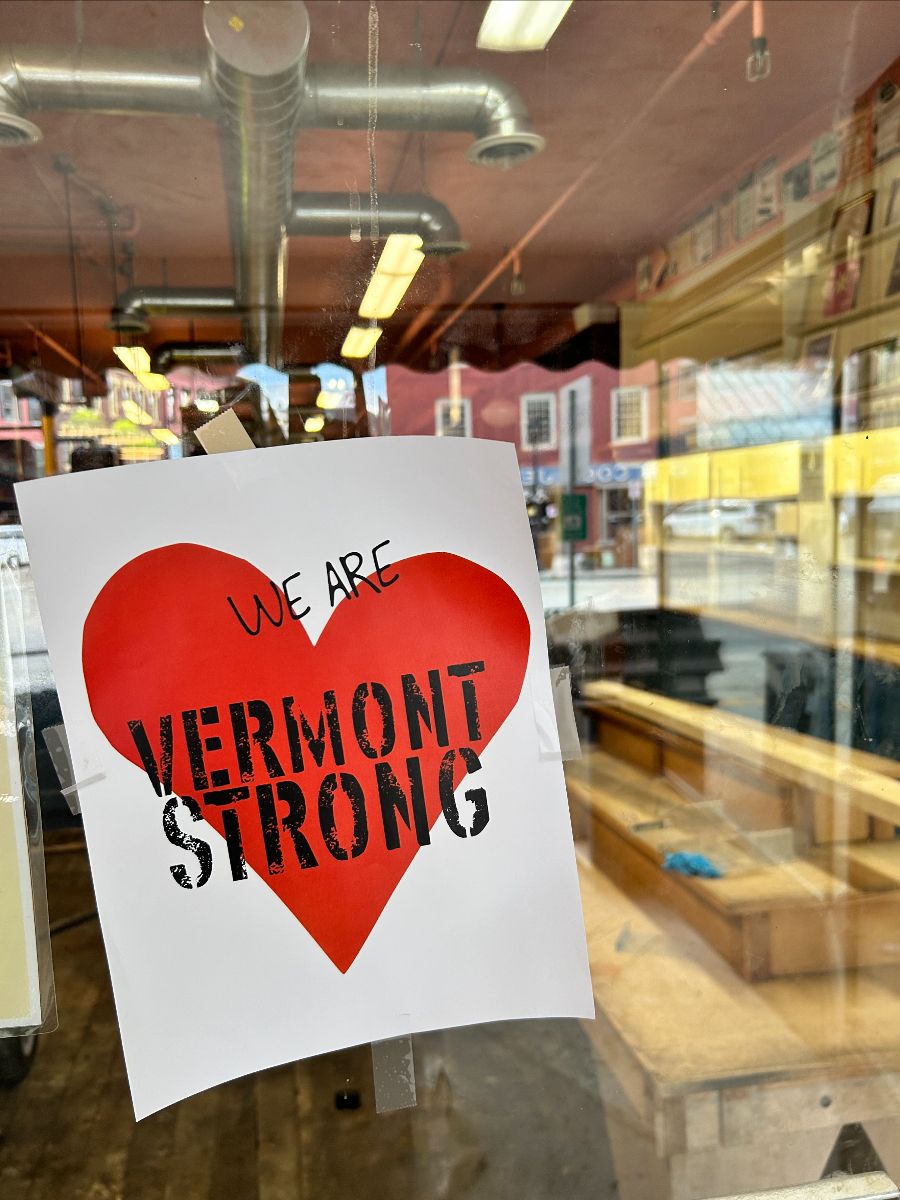 Earlier this month, the devastating floods that hit parts of Vermont, my home state, became the latest regional challenge.
Earlier this month, the devastating floods that hit parts of Vermont, my home state, became the latest regional challenge. 